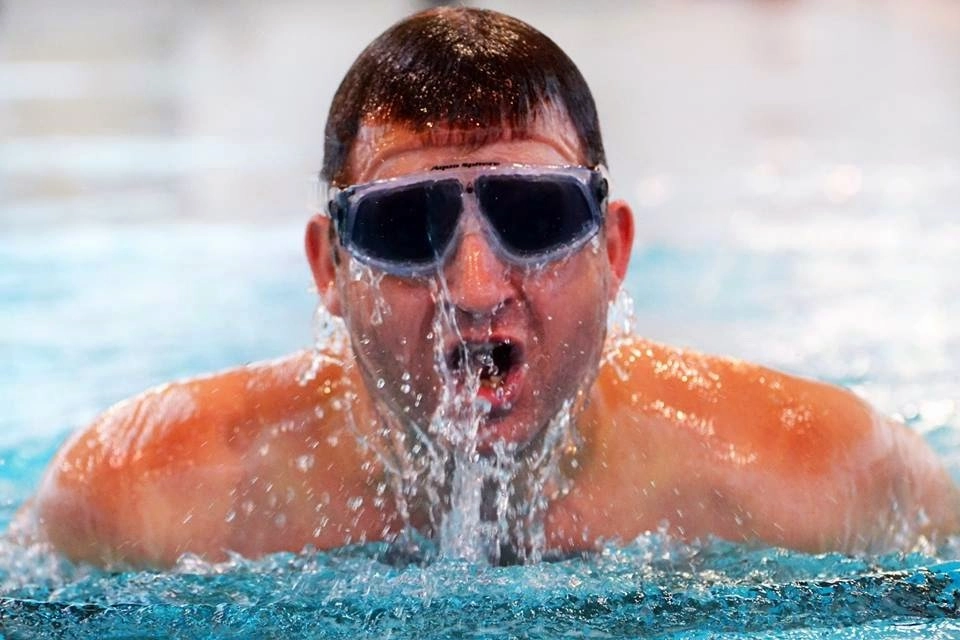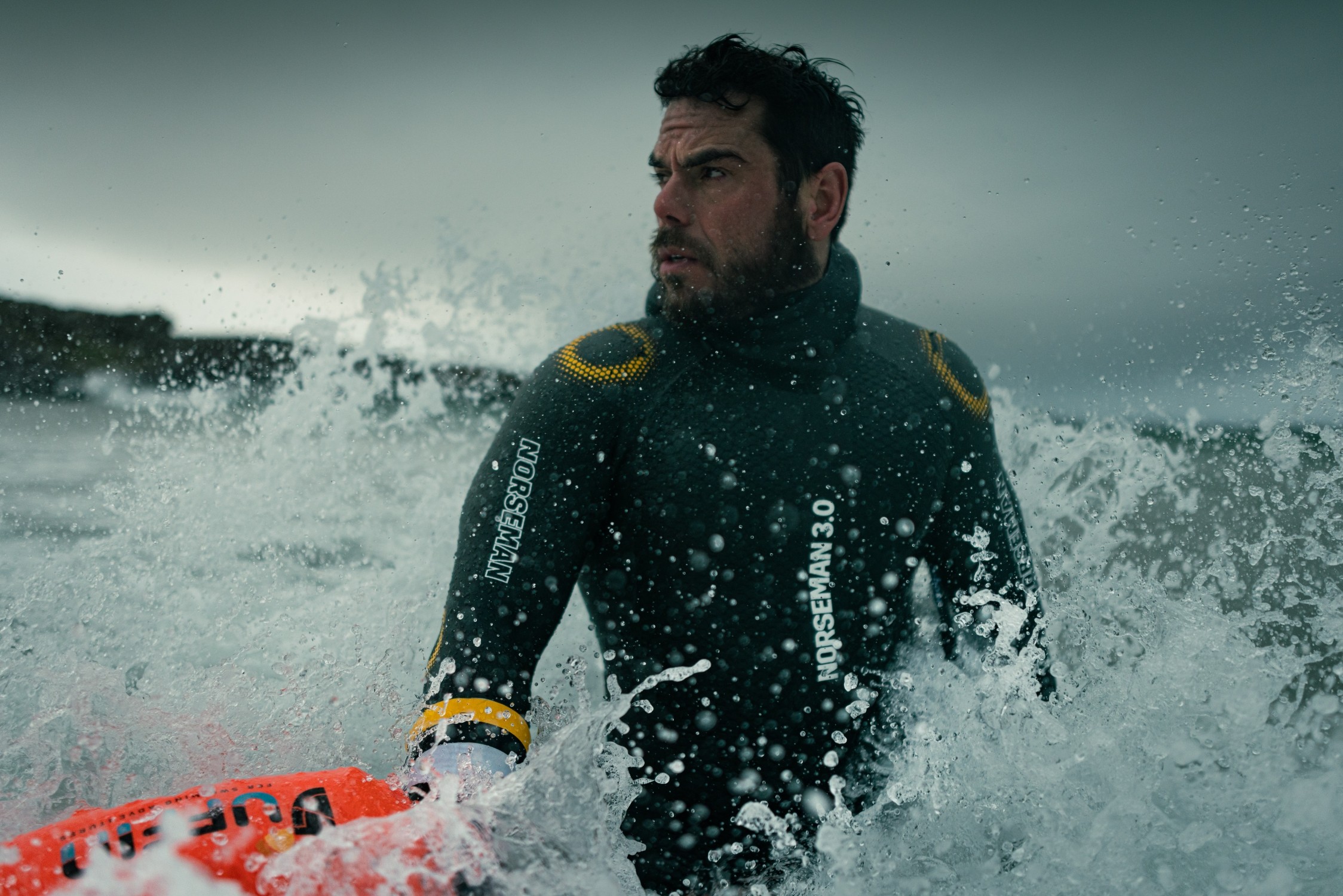
Endurance Swimming Expert Ben Hooper on What Ross Edgley Faces in His Forthcoming Great Icelandic Swim
Overview:
Ultra-endurance swimmer and Atlantic crossing record-holder Ben Hooper offers a deep expert analysis of Ross Edgley’s upcoming “Great Icelandic Swim” — a 1,000-mile solo swim through freezing Arctic waters, starting 16th May 2025. Drawing on his own experience surviving the Atlantic’s extremes, Hooper breaks down the hidden dangers Edgley will face: hypothermia, cold incapacitation, nerve damage, and the devastating toll of salt exposure, as well as the enormous psychological strain of isolation and sleep deprivation. He also explores the expedition’s environmental science goals, why this venture matters beyond personal achievement, and what it reveals about human limits in a rapidly changing ocean.
Quotes:
“Ross Edgley’s newly-announced “Great Icelandic Swim” will ask him to cover roughly 1,000 miles of storm-lashed coastline in 90–100 days, gathering ocean-science data as he goes and with sea temperatures forecast to float between 6 °C and 10 °C even in midsummer, the task sits at the intersection of adventure sport and applied physiology rather than mere spectacle. Iceland’s rapidly warming marginal seas are also a climate bell-weather, giving the expedition genuine research value; and I am led to believe that samples taken from Edgley’s support yacht will be analysed for micro-plastics and plankton shifts, data seldom collected so close to shore. Yet for all the science, comparisons with Ross’s 2018 Great British Swim are inevitable: is this remarkable undertaking another island-circling record attempt, or a substantive leap forward? A fair reading is that it is both. But I suspect the Marathon Swimmers Forum will spout their opinions and others too, but there is a balanced argument to be had.
“Professor Mike Tipton, the UK’s leading cold-water immersion expert, frames the principal hazards in four stages: initial cold-shock (an involuntary gasp plus surging heart rate), short-term “cold incapacitation” of limbs, gradual deep-body hypothermia and, on exiting the water, dangerous after-drop. Now, I assume Edgley’s team are skilled and experienced enough, as is Ross, to blunt the first two threats through incremental acclimatisation swims, heated recovery cabins and a robust neoprene and lanolin regime, for example, but they cannot abolish them. My own attempt to swim an assisted west-to-east Atlantic crossing in 2016, which ended following death and later, during continuation, irreparable vessel damage, I still experienced coldness and numb extremities after hours on the ocean. Tropical conditions. Edgley, well he will be fighting the same progressive nerve cooling every session at a greater level. If he sticks to his plan of 30 nautical miles per day he may be in the water for 10–12 hours at a stretch, at least without assistance, long enough for hypothermia to creep in if his core drops just 1 °C per hour.
“That mileage sets a brutal fuelling equation. At a conservative 250–300 kcal per mile in 8 °C water, Edgley must ingest, at least 8,000 kcal daily simply to stay in calorific balance—less than the 10–15 k he swallowed during the Great British Swim but still equivalent to nine roast dinners. The reason, cold water amplifies metabolic rate by perhaps 5 % for every degree below thermoneutral, so the menu for Ross should lean on energy-dense fats (nut butters, coconut-oil gels) and easily digested carbohydrates between feeds. Gastro-intestinal fatigue is a real risk: nausea, diarrhoea and oesophageal soreness are common after a fortnight of round-the-clock eating, and salt-water ingestion, and any sustained deficit will further erode Ross’s lean mass, further sapping cold tolerance. Which given Edgley’s last attempt in warmer waters, his attempt at the world’s longest lake swim in Loch Ness. This was considered a failure (although I would never say an attempt is a failure, only those who do not try, would say such things), because Ross was medically pulled-out of the foreboding Loch after 52-hours and 39-minutes. Ross had originally aimed for a 100-mile swim but was forced to stop due to cellulitis, hyperthermia, and kidney failure. All of which puts him at a predisposed risk for this to happen again, sadly.
“However, even if the calories land, salt and friction can shred a swimmer before exhaustion does. During his UK circumnavigation Edgley’s tongue partly disintegrated, his neck developed plaque-like calluses (“rhino-neck”) and the arches of his feet collapsed. I did experience similar but protected my mouth with 6 x daily mouthwashes with dental mouthwash, barrier creams and Vaseline on chin, nape and underarms. Which if Ross employs, with regular debridement of heel fissures which should be non-negotiable this time, he will stand a better chance of completion. After three to four weeks, cumulative shoulder micro-trauma and salt-edema of the wrists tend to surface; physiotherapy on deck and rigid load-management (no hero sprint finishes) are the only proven mitigations here which I am certain, Ross will have on-board.
“Psychologically, Edgley is famed for turning the grind into theatre, yet monotony and sleep-debt remain his quietest adversaries. A 68-foot expedition yacht and large rotating crew offer social stimulus which I did not myself in the Atlantic, but coping rituals e.g. visualisation, short-term goal-setting structured rest blocks, surely must be entrenched early to avoid the morale dip that felled earlier and other ultra-swims. Ultimately, the venture’s environmental framing gives it moral heft, but in the unforgiving Iceland coastal waters of North Atlantic, Greenland Sea and Arctic Waters, that will count for little against physiology and physics.
“This achievement, if realised, well will it be more than “just another island swim”; perhaps. Or, it may be a timely demonstration of human adaptation—and its limits—in an ocean that is itself in rapid flux. It may also draw much needed attention to the environmental concerns our beautiful oceans face. And of course, for Edgley, he will personally, no doubt gain from this venture.
“I wish Ross well, his crew too, and will watch as so many others will, with interest. Afterall, if as humans we do not push our limits and test ourselves, learn more of our world and boundaries, whatever the challenge, then what purpose do we truly serve in this life.”
Author bio:
Ben Hooper is a world-record-holding endurance swimmer best known for his attempt to swim every mile of the Atlantic Ocean. His expedition, Swim the Big Blue, remains the only WOWSA-verified full Atlantic crossing attempt. A motivational speaker and ocean advocate, Ben now shares his knowledge of wild swimming, adventure travel, and personal resilience through writing and public speaking.
Availability:
Free to use | Available within 24 hours | Images and author bio included
Commission this article:
enquiries@capitallmedia.co.uk or contact us here


